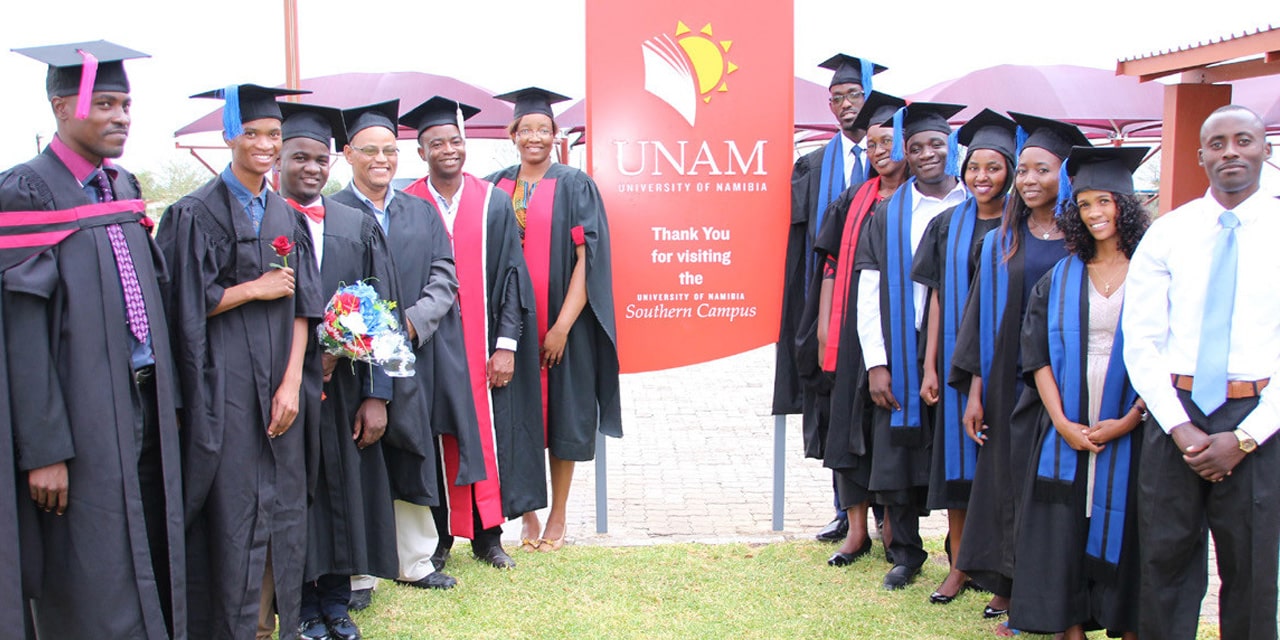Rose-Mary Haufiku
Amid rising numbers of unemployed graduates in the country, questions have begun to be raised on whether the country’s top universities are offering relevant courses to the country’s existing socio and economic conditions.
The latest university survey shows that approximately 7 383 students graduated from the country’s top three universities, namely University of Namibia (Unam), Namibia University of Science and Technology (Nust) and International University of Management (IUM) in 2020, with majority eyeing to be absorbed into the job market.
According to the Ministry of Higher Education, Technology and Innovation (MHETI) there are over 67 000 unemployed graduates in the country. MHETI says universities should consider cutting intakes for courses which are currently having an oversupply of graduates on the job market. “If there is an over-supply at an institution, reducing intake in that particular programme will be considered. The Ministry urges all Namibian institutions to help the Government reduce the unemployment rate by offering programmes that lead to value addition and of course exposing them to be self-employable,” Executive Director, Dr Afred van Kent, said.
“Unfortunately, the global economic crisis that has impacted our country has made it difficult for graduates or any other youth in Namibia to secure or acquire employment in public and private sector.” Van Kent said although there aren’t jobs available, in order “for the economy of Namibia to be transformed from a resource-based to an innovation driven knowledge-intensive economy, there is a need to train and re-train Namibians in all fields demanded in the Namibian economy, because all fields contribute to the growth of the economy”.
Unam spokesperson, John Haufiku, told The Windhoek Observer that, courses being offered by the university are still relevant, although they believe that there is still more that can be done to better prepare students for the world of work as wells for self-employment.
“All along we have been preparing graduates for the world of work and that never seemed like a problem if there were available spots willing to absorb these graduates. Things have changed, too many graduates and too little new jobs being created by the industry,” Haufiku said adding that the economic crisis puts the university in a dilemma where they need to equip graduates with knowledge, not only to become employees but also to foster their own employment.
He acknowledged the need to start teaching university students to be enterprising in light of the current economic conditions in the country, which are not favourable to employment.
“Namibia is in the era of self-employment where people have their own business by virtue of their own personal characteristics and educational skills. Universities thus need to start preparing their students to be able to start up their own businesses,” Haufiku said.
IUM spokesperson,Gerry Munyama, said the university has already introduced entrepreneurship in every course across its campuses.
“The particular reason for this action is that each graduate needs entrepreneurship skills,” he said.
Although Nust acknowledges the fact that the number of unemployed graduates in the country is extremely worrisome, the university maintains that, “our core mandate remains that of providing quality knowledge and skills, to meet the country’s human resource requirement.”
The Namibia Qualification Authority (NQA) Manager: Marketing and Communications, Catharine Shipushu said, “another factor to consider is whether the labour demand for graduates is rapid enough to absorb all the graduates at any particular time. Some of the contributing factors as to why graduates might not be employable, include economic factors affecting the labour market, lack of experience, and skills mismatch to name but a few.”
She said reducing the number of unemployed graduates in Namibia is a colossal task that requires a multipronged approach and active participation by all the relevant stakeholders, including training providers and employers.
“Interventions to be considered include enhancing students’ innovative and entrepreneurial skills through the programmes offered by training providers. There is also a need to strengthen partnerships and collaboration between training providers and the labour market to create more opportunities for mentorship, work integrated learning and apprenticeship programmes for purposes of empowering graduates with the right skill set,”Shipushu said.
Namibia Students Financial Assistance Fund’s (NSFAF) Chief: Human Capital and Corporate Affairs, Olavi Hamwele, said “failure of graduates to get jobs after graduation impacts NSFAF’s financial position and ability to fund needier students. This actively demonstrates that fewer students shall be funded insufficiently due to the fact that most graduates are unemployed and thus unable to refund NSFAF’s money.”
“Paying back would have helped a great deal in meeting the Government budget allocation half way and thus enable NSFAF to fund more students at a satisfactory level.” NSFAF is currently owed N$ 5.6 billion in study loans.
“However, only $3.5 billion of the owed amount are matured – meaning that such beneficiaries have completed their studies. The rest are un-matured loans,” he said.




